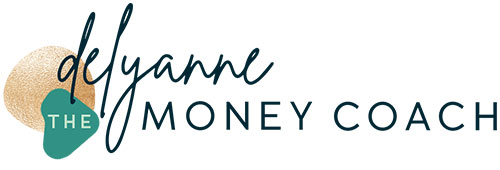Delyanne Barros is a contributor to Forbes. This article was originally published on Forbes.com on March 27, 2023.
Cash has been crowned king yet again. Investors and savers are piling into cash as a safe haven from the banking turmoil that has rocked the industry these last few weeks. Since the collapse of Silicon Valley Bank, investors have transferred over $300 billion into money market funds bringing the total to a record-breaking $5.4 trillion.
Until recently, money market funds didn’t produce enough returns to lure investors away from the stock market or depositors away from savings accounts. For the last 10 years, the S&P 500 had an average yearly return of 9.82%. Compare that to Vanguard’s VMFXX 0.78% return and it’s no wonder catchy phrases like “cash is trash” caught on with investors. Not too long ago, keeping more than three months of expenses in a savings account was considered unwise because of the opportunity cost compared to investing.
However, nothing lasts forever. In times of market uncertainty and banking instability, investors seek out safer options to protect their hard-earned money and that often means liquid options such as cash. This is particularly true for risk-averse investors or those who are planning to retire soon and will be relying on their investment portfolio to cover their living expenses.
And until recently that also meant keeping money stored at a regional bank through a savings account. But SVB shook people’s trust in regional banks and over $100 billion flowed out of small banks into bigger banks or money market funds.
But what are money market funds and why are people flocking to them as an option for storing cash?
What Are Money Market Funds?
Money market funds are a type of mutual fund that invests in short-term, high-quality debt securities, such as Treasury bills, commercial paper, and certificates of deposit. They are not invested in the stock market. Think of them as loans that pay the investor interest. They are generally considered safe and low-risk investments, making them attractive to conservative investors or those looking for a place to park cash.
These conservative funds are overseen by professional fund managers who strive to maintain a stable net asset value (or NAV) per share, typically at $1.00. They technically pay investors dividends instead of interest and they are both treated as ordinary income for tax purposes.
Money market funds can be used to store short-term cash that’s needed in less than five years such as an emergency fund, vacation savings, wedding costs, medical costs such as deductibles, a down payment for a home, or any other sinking fund.
Money market funds aim to provide investors with liquidity, capital preservation, and modest income generation. However, there are also downsides such as low returns, inflation risk, interest rate risk, and fees.
Are Money Market Funds Insured?
Money market funds are investments so they are not insured by the Federal Deposit Insurance Corporation, but they are insured by a federally-mandated non-profit known as the Securities Investor Protection Corporation (SIPC) that insures up to $500,000 in cash and securities per ownership capacity, including up to $250,000 in cash. SIPC does not protect against market risk or investment losses. Its primary role is to help recover customer assets if a brokerage firm goes bankrupt or faces financial trouble.
It’s important to note that the SIPC limits are per customer, per brokerage firm, and per account type. So if an investor had two brokerage accounts at the same broker, their total coverage would be $500,000. But if they had a brokerage account and a Roth IRA then they would be covered for a total of $1 million. Some brokers, like Charles Schwab, also have excess insurance to cover investors at higher limits.
What Are The Pros of Money Market Funds?
One of the most significant advantages of money market funds is their liquidity. Investors can quickly and easily access their funds, making it an ideal choice for those who may need to withdraw their investment at short notice. Just like a savings account, you can access the funds any time by selling your money market funds and transferring the cash to a checking account for withdrawal. There are no penalties or fees for withdrawing your funds.
The brokerage platforms that sell money market funds also make these funds more accessible than buying bonds or Treasury Bills directly from the government through Treasury Direct. The Treasury Direct website is outdated, clunky, and can be a bit difficult to navigate whereas a brokerage website can be much more streamlined.
Money market funds invest in high-quality, low-risk securities, reducing the likelihood of significant capital loss. These funds can provide portfolio diversification, helping to mitigate overall investment risk. They also can act as a buffer against the volatility of higher-risk investments, such as stocks and bonds.
While money market funds are not designed to provide substantial returns, they are currently yielding higher-than-average returns due to the Fed’s rate hikes. Many are yielding more than 4% a year. Look for the “seven-day yield” to determine a money market’s current interest rate. Keep in mind that these are variable interest rates and will fluctuate over time just like those in a savings account.
Money market funds distribute their earnings through dividend payments and those are taxed just like interest from a savings account. However, there are certain money market funds that are tax-exempt and those may be worth exploring. Tax-exempt money market funds are not subject to federal income tax. Some may even be exempt from state or local tax depending on the investor’s state of residence.
What are the Cons of Money Market Funds?
Money market funds certainly have their downsides and every investor should be aware of them. One of the primary disadvantages of money market funds is their relatively low returns compared to other investment options such as the stock market.
Due to their conservative investment strategy and focus on capital preservation, money market funds typically generate lower yields than stocks, index funds, ETFs, and certain bonds. Investors seeking higher returns or long-term growth may find money market funds insufficient to meet their financial goals. Remember that money market funds are defensive in nature and are not focused on wealth building.
Although money market funds are considered low-risk investments, they are not immune to inflation risk. If inflation outpaces the returns generated by a money market fund, the purchasing power of the invested capital can be eroded over time. This makes them less suitable for investors seeking real returns or long-term capital appreciation. Currently, money market funds are not outpacing inflation, which is still hovering at 6%.
Changes in interest rates can affect the value of the securities held in a money market fund. When interest rates rise, the prices of existing debt securities generally fall. This can lead to a decline in the fund’s NAV which is typically set at a dollar. However, this risk is typically lower in money market funds due to their short-term investment horizons.
Like other mutual funds, money market funds charge management fees and expenses, which can eat into the returns generated by the fund. Given the relatively low returns of money market funds, it is essential to carefully consider the fee structure of the fund to ensure it aligns with an investor’s investment objectives. A money market fund’s fee is usually called an expense ratio. The seven-day yield of a money market fund is already factored into the expense ratio.
How to Purchase A Money Market Fund
Money market funds can be purchased through various platforms like online brokers. Some popular brokers include Fidelity, Vanguard, Charles Schwab, and TD Ameritrade.
Money Market funds can be bought by first opening an investment account. This includes a traditional IRA, Roth IRA, HSA, or brokerage account. Once a checking account is linked to the investment account, money can be deposited. Once the deposit has settled, a money market fund can be purchased.
A money market fund will have a ticker symbol just like a stock. Enter the ticker symbol and then hit the buy option. Enter how many shares are being purchased and then execute the order.
Some brokers, like Vanguard, will automatically invest an investor’s cash into a money market fund. Other brokers, like Fidelity, will ask which money market fund an investor prefers for cash deposits.
Investors should take their time researching different money market funds to find the one that aligns with their goals and taxation preference. Always remember the golden rule– never invest in something you don’t understand.






